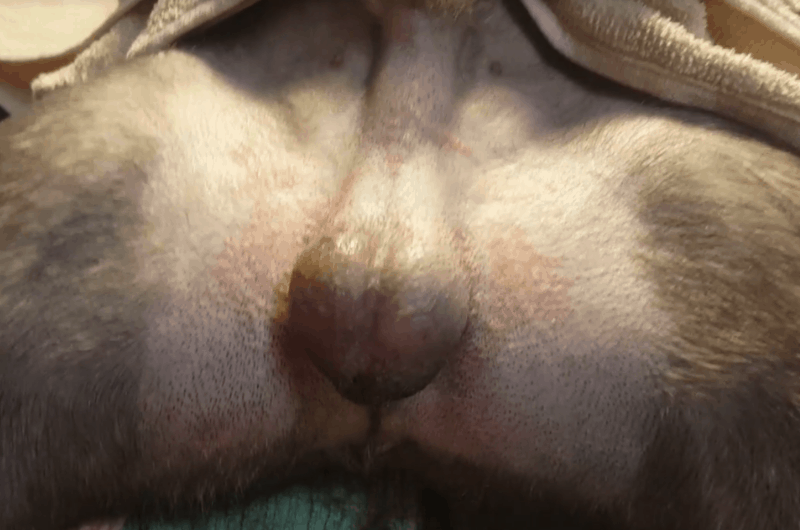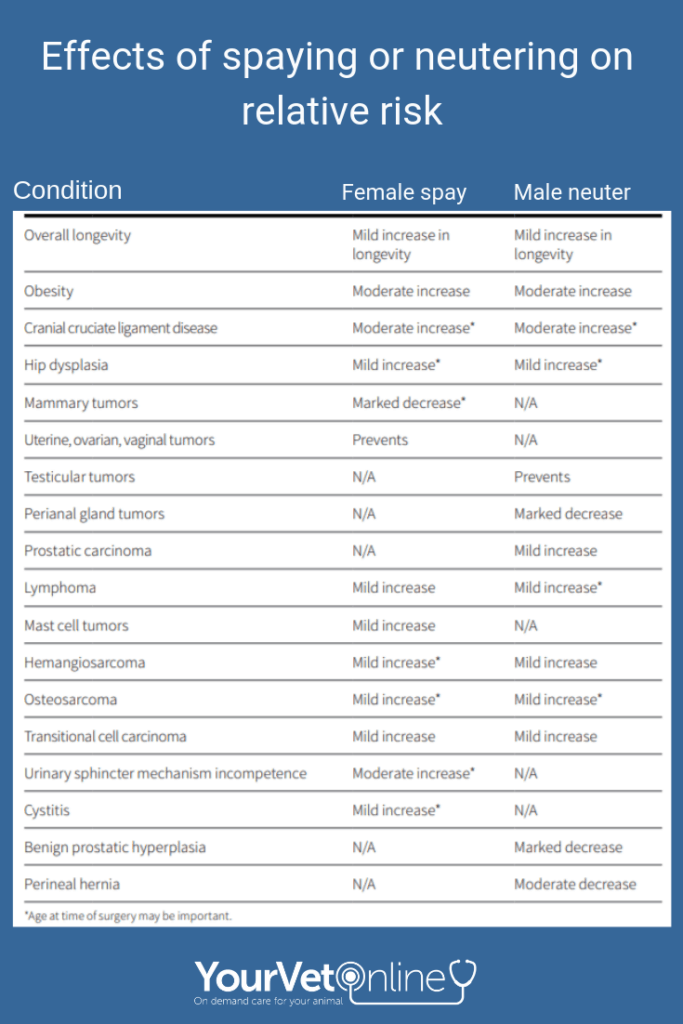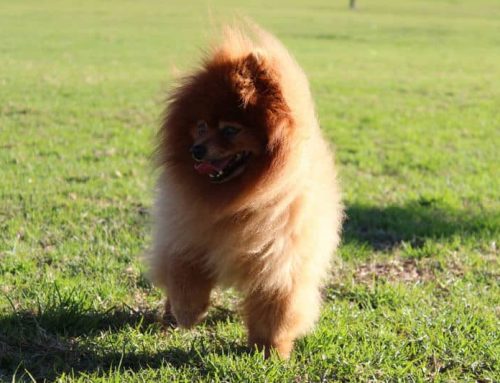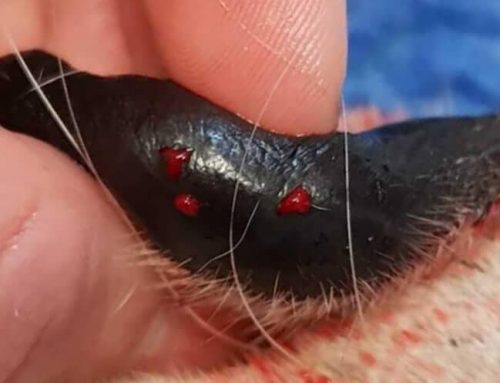When To Neuter A Dog? What Age Is Best
A common question that vets are asked is when is the best time to neuter my dog?
In the past, most veterinarians would have quickly replied with an estimate of around 6-9 mths old being best.
But now, with studies looking at the relationship between neutering and health, that advice may well be regarded as obsolete.
In this article, I discuss factors to consider when making the decision as to the timing of neutering your dog.

There really is no one size fits all answer to the question of when the best age for neutering is.
Evidence-based medicine suggests that there is a complexity to the different guidelines for age of neutering depending on the breed and its behaviour.
We discuss new research published in 2020 that sheds some more light on this complicated topic.
Definitions: Neutered And Spaying
When we talk about a neutered dog we are referring to a male that has had his testicles removed. In some countries, this may also be referred to as castration.
In contrast, spaying a dog is the process of removing a bitch’s ovaries and uterus so that she is unable to have puppies.
Many of the studies related to the timing of desexing are retrospective – meaning that they are assessing data from the past.
We also don’t know important facts like behaviour, vaccination status, weight, and age of desexing.
The vast majority of these studies show conflicting data making an assessment of the studies difficult and recommendations for timing of desexing impossible.
Many of the statistics are complicated and much of the information on the net has not interpreted study findings accurately.
One important fact to remember is that our pets are living longer lives, just like us.
We do know that desexing does increase lifespan and as a result, the risk of developing conditions like cancer may be higher (1) and have little relevance to desexing.
We, therefore, need to ask – Are these study results due to the dog being sterilised? Or is it just a function of getting old?
Further prospective studies are required to answer this question. (One study in Golden retrievers is currently being undertaken).
New Research: In 2020 research was published that gave more guidelines for the best timing to desex your dog
What Factors Do I Need To Consider Before Neutering My Dog
When deciding the best time to neuter your boy, it’s important to consider the following:
- Breed size i.e. giant breed vs small breed
- Behaviour – is he showing signs of aggression vs anxiousness
- Cancer risks
- Your ability to keep your dog from roaming and subsequent consequences i.e. injury, unwanted matings
Neutering Large Or Giant Breed Dogs – Joint Disorders
Neutering prior to puberty (<6 months) results in the removal of hormone influence on physeal growth plates resulting in delayed closure.
This leads to an increase in bone length (your dog may grow very tall) and can lead to joint problems for some dogs. (2)
The risk of developing hip dysplasia and cranial cruciate disease may also increase with pre-puberty desexing(3).
Again, we need to remember that genetics and exercise do play a large role in the development of these conditions.
The Effect Of Neutering On Dog Behaviour
A very important consideration when deciding when to neuter is what their behaviour is like. This is even more important with our large or giant breeds.
Anxious and aggressive behaviour from these breeds can be disastrous in our society(4).
Again, there is no easy or correct answer and as much as I hate to say “it all depends!”
One thing we are sure about is that once an intact dog is displaying aggressive behaviour, neutering will unlikely result in any change in that behaviour (5).
In summary, the effects of neutering on behaviour does require more study as the majority of the current research has produced conflicting results.
The Risk Of Cancer In A Neutered Dog
UPDATE: New 2020 research: check out when is the best age to desex your dog
Again, the evidence is still variable for this topic.
Removing the testicles will prevent testicular cancer and any other cancers that rely on testosterone to grow.
There are some other cancers that may be more likely in the castrated pet, but the evidence is lacking. Is this due to age because we know castration results in a longer lifespan?
Ownership Responsibilities
The most important question to ask yourself is
“are you able to keep your boy confined so that they are unable to escape?”
We have a huge problem with unwanted and stray dogs. If your property is not fenced and you want to let your dog roam and be ‘off leash’ then you need to have your dog neutered sooner rather than later.
What Are The Benefits Of Neutering Your Male Dog?
- You will prevent unwanted pregnancy and lower the risk of over-population.
- Your dog will roam less – and this means less risk of accidents such as being hit by a car or getting into fights with other dogs. Let’s also not forget that a roaming dog may end up in your local Pound resulting in a fine to regain possession.
- There will be less marking of territory – again this is very dependent on the timing of neutering. If neutered prior to the development of sexual characteristics then marking won’t occur. Once marking of territory starts, it is unlikely to stop.
- Will prevent testicular cancer and can decrease risk of prostate problems such as prostatitis (inflammation/infection) and benign prostatic hyperplasia (enlargement) that are due to hormones.
- Will prevent some types of hernias and tumours of the anus.
- Large breed male dogs after they hit puberty can be very strong, aggressive and very difficult to control. You need to be very sure of your ability to control and socialise these dogs appropriately.
Dr Leigh’s Two Cents On Age Of Desexing
My personal bias on the topic of neutering dogs is that we still have a lot to learn and we need to make our decisions based on the individual animal and the family it lives in.
For the vast majority of smaller dogs, I am happy for them to be neutered as a puppy around 6 to 9 months of age or prior to puberty if in a shelter situation. This does not appear to cause increased joint disorders or cancer.
Large or giant breeds, it may be more appropriate to delay neutering to minimise the risk of joint disorders, however, consideration needs to be given regarding the behaviour and ability of the owner to care for large, strong intact males.
Let’s also not forget that the individual dog’s genetics and the environment play a huge and often forgotten role in the development of many of these disease and behavioural processes.
Bottom line, it is best to talk with your vet or with one of our vets about your individual situation.
There are no hard and fast rules and together we can determine the best age for neutering your male.
- https://journals.plos.org/plosone/article?id=10.1371/journal.pone.0061082
- https://www.ncbi.nlm.nih.gov/pubmed/2045340
- https://www.ncbi.nlm.nih.gov/pubmed/18598150
- https://www.rspca.org.au/sites/default/files/RSPCA%20Australia%20Annual%20Statistics%20final%202016-2017.pdf
- https://www.frontiersin.org/articles/10.3389/fvets.2018.00018/full

- 15
- 15





I just got a three month old York’s when should I get him nutered?